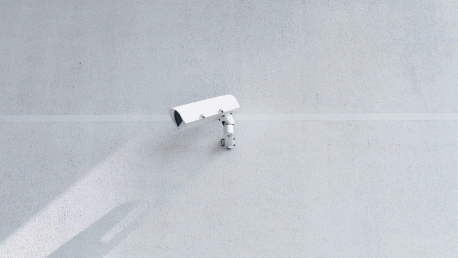Regardless of the political side of the situation, the curious case of Edward Snowden has proven one thing: when uncovered, government spying enables a giant push to data scrambling on the Web.
Giants like Yahoo, Google, and Microsoft have substantially implemented encrypted data over the last 15 years. According to MIT Technology Review, Electronic Frontier Foundation (EFF) believes that in the nearest future, every file crossing the Internet could be protected with encryption, which uses mathematics to scramble and unscramble messages.
In cases of big corporations, it is clear that this trend is, in a way, historically imposed. There have been instances of corporate-government collaborations in collecting, sorting, and analyzing personal data. Whereas enterprises use it for profit-driven goals (e.g. personalized marketing), governments cover bigger areas for their national security. However, the current public opinion about this sort of partnership is more than skeptical.
Leaving the Snowden case aside, let’s just recall the biggest data breaches of the last 10 years:
- Adobe (October 2013)—153 million accounts compromised
- Adult Friend Finder (October 2016)—412.2 million accounts compromised
- Canva (May 2019)—137 million accounts compromised
Nowadays, when people are more educated than ever before about all sorts of cyber threats to their personal information, companies cannot offer a quality customer experience without proper security assurance. Thus, the major shift to encryption can be seen as a worldwide customer service move.
On an individual level, the main concerns are, of course, surrounding the privacy of communication and activity. After the major Facebook-Cambridge Analytica scandal of 2018, a lot of social media users became aware of the fact that the platforms they consciously or unconsciously viewed as private places were, in fact, public and marketable.
This explains the latest boom in messaging apps that use end-to-end encryption, rather than the traditional encryption in transit. It means encrypting communications in order to make information unavailable to third parties. The insecure plain text transforms into a secret code this way.
Why is end-to-end more secure than in transit? Martin Kleppmann, former Rapportive co-founder and LinkedIn engineer, explained the difference for heimdalsecurity.com:
“Although encryption in transit is widely used, it has serious security problems. For example, the service provider could be hacked by an adversary, or compromised by an insider, causing sensitive information to be leaked. A fault in the service provider could cause data to be corrupted. For these reasons, security experts are pushing towards the widespread use of end-to-end encryption, which reduces the exposure to such attacks.”
No wonder people value the privacy of their lives and no one wants to rely on some service provider when it comes to their personal safety. This is why they massively shift to messaging apps using end-to-end encryption. Here are some of the more popular free ones and their benefits for your needs (apps and descriptions provided by digitaltrends.com).
Signal Private Messenger
Signal is an independent nonprofit supported by users—no ads or trackers. You can use your existing phone number and address book to securely communicate, as well as sketch, crop, and flip outgoing photos.
The app received a $50 million investment from WhatsApp co-founder Brian Acton, who supports “making private communication accessible and ubiquitous.”
Threema
You can use Threema anonymously to make end-to-end encrypted voice calls, send texts and voice messages, share videos, and even conduct polls. Using the open-source NaCl cryptography library, the app encrypts all communication. It generates very little server-based data, and group memberships and contact lists are stored directly on your device, not in the cloud.
Also, there is the QR code and key fingerprint available for user verifications. Say “goodbye” to man-in-the-middle attacks.
Telegram
Telegram connects people via a unique distributed network of worldwide data centers. A syncing feature lets you send and access messages from all your devices at once with the ability to start communication on your phone and finish it on your tablet or laptop. You can create group chats for up to 200,000 members, share large videos and documents, and even set up bots for specific tasks.
To get a feeling of its great popularity, just look up the Russian government’s continuous efforts to ban it.
Dust
Want to send secret texts? Dust offers you total control over your digital communications free from prying eyes, data mining, and hackers. For every day texting and sharing photos with friends and family, or handing over private information like credit cards, or social security numbers—Dust will protect your data.
It doesn’t allow anyone to take a screenshot of your conversation without you knowing, so that’s also an advantage.
Viber Messenger
More than one billion people rely on Viber as their fast, secure messaging and calling app. With your data plan or Wi-Fi connection in place, you can make free international calls; send text messages, photos, videos, GIFs, and stickers; open a group chat; and more. It is fully synced between desktop and tablet for both audio and video calls.
The number of users kind of speaks for itself here.
The increasing popularity of these products lies not only in their design or technical qualities. Encrypted messengers are not just a tech trend. They are a sign of a major transformation of the collective consciousness. People of all ages are actively learning that the Internet is very much alike the non-virtual space: it features a multitude of both private and public places and their online activity is radically more responsible than it was a decade ago. They are substantially more difficult to manipulate and satisfy than ever. Because now, the screen isn’t the limit between reality and non-reality. It’s just another window towards life.









